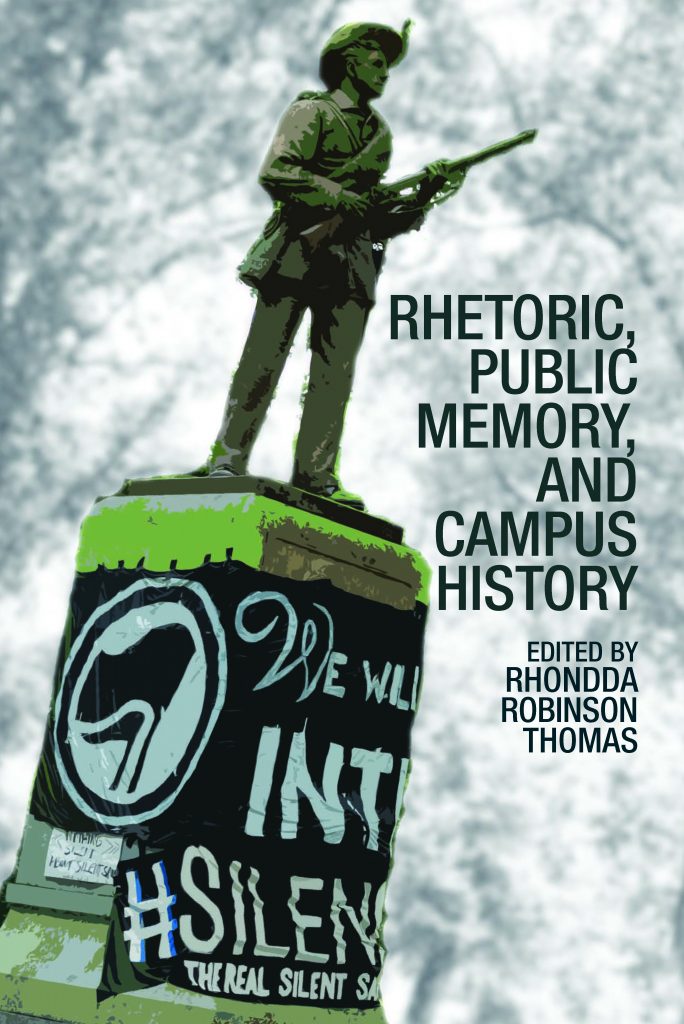Rhetoric, Public Memory, and Campus History
Edited by Rhondda Robinson Thomas
This collection explores the inextricable link between rhetoric, public memory, and campus-history projects. Since the early twentieth century, higher-education institutions around the globe have launched initiatives to research, document, and share their connections to slavery and its legacies. Many of these explorations have led to investigations about the rhetorical nature of campus-history projects, including the names of buildings, the installation of monuments, the publication of books, the production of resolutions, and the hosting of public programs. This volume examines the rhetorical nature of a range of initiatives, including the creation of land-acknowledgment statements, the memorialization of universities’ historic financial ties to the slave trade, the installation and removal of monuments or historical markers, and the development of curriculum for campus-history projects.
(Photo of protest against Silent Sam by Martin Kraft, photo.martinkraft.com, CC BY-SA 3.0, via Wikimedia Commons.)
TABLE OF CONTENTS
Introduction. The Inextricable Link between Rhetoric and Remembrance in Campus History Projects | Rhondda Robinson Thomas
1. “Always Cherokee Land”: Campus History and Indigenous Placemaking in Western North Carolina | Andrew Denson
2. Acknowledging the Legacies of Enslavement in British Universities: Slavery, Abolition, and the University of Glasgow | Stephen Mullen
3. Acknowledging Slavery’s Ties to Minnesota’s Public Universities through Historical Markers | Christopher P. Lehman
4. Beyond Kitty’s Cottage: The Double-Containment of Catherine “Miss Kitty” Boyd and Black Commemoration Practices in Oxford, Georgia | Monet Lewis-Timmons
5. Reckoning with Silent Sam: The Confederate Monument at the University of North Carolina at Chapel Hill | Cecelia Moore
6. White Memory and White Violence at Elon University | Charles F. Irons
7. “We Must Stand United”: Re-telling a Radical History of Bronx Community College at the City University of New York | Prithi Kanakamedala
8. Looking Racism in the Face at Clemson University | Charissa Fryberger
About the Editor
Rhondda Robinson Thomas is the Calhoun Lemon Professor of Literature at Clemson University where she teaches and researches early African American Literature. She is author of Call My Name, Clemson: Documenting the Black Experience in an American University Community and Faculty Director of the award-winning Call My Name Project for which she has received grants from the National Endowment for the Humanities. She has published articles and books with Cambridge University Press and Oxford University Press as well as in African American Review and American Literary History. She is also the research and community engagement coordinator for the Clemson’s Woodland Cemetery Project.

Details
Pages: 258 pages
Published: April 2022
Formats
Hardback
ISBN: 978-1-63804-020-0
eBook
ISBN: 978-1-63804-021-7
Subjects
General InterestRhetoric
Series
Rhetoric and Conflict

